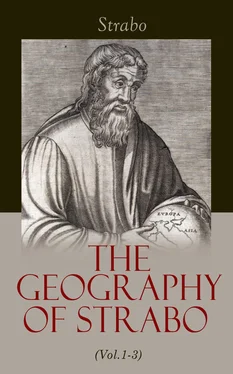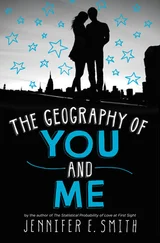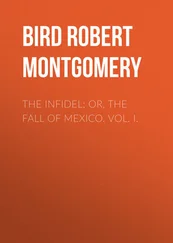Strabo - The Geography of Strabo (Vol.1-3)
Здесь есть возможность читать онлайн «Strabo - The Geography of Strabo (Vol.1-3)» — ознакомительный отрывок электронной книги совершенно бесплатно, а после прочтения отрывка купить полную версию. В некоторых случаях можно слушать аудио, скачать через торрент в формате fb2 и присутствует краткое содержание. Жанр: unrecognised, на английском языке. Описание произведения, (предисловие) а так же отзывы посетителей доступны на портале библиотеки ЛибКат.
- Название:The Geography of Strabo (Vol.1-3)
- Автор:
- Жанр:
- Год:неизвестен
- ISBN:нет данных
- Рейтинг книги:3 / 5. Голосов: 1
-
Избранное:Добавить в избранное
- Отзывы:
-
Ваша оценка:
- 60
- 1
- 2
- 3
- 4
- 5
The Geography of Strabo (Vol.1-3): краткое содержание, описание и аннотация
Предлагаем к чтению аннотацию, описание, краткое содержание или предисловие (зависит от того, что написал сам автор книги «The Geography of Strabo (Vol.1-3)»). Если вы не нашли необходимую информацию о книге — напишите в комментариях, мы постараемся отыскать её.
The Geography of Strabo (Vol.1-3) — читать онлайн ознакомительный отрывок
Ниже представлен текст книги, разбитый по страницам. Система сохранения места последней прочитанной страницы, позволяет с удобством читать онлайн бесплатно книгу «The Geography of Strabo (Vol.1-3)», без необходимости каждый раз заново искать на чём Вы остановились. Поставьте закладку, и сможете в любой момент перейти на страницу, на которой закончили чтение.
Интервал:
Закладка:
22. The present undertaking is composed in a lucid style, suitable alike to the statesman and the general reader, after the fashion of my History. 69By a statesman we do not intend an illiterate person, but one who has gone through the course of a liberal and philosophical education. For a man who has bestowed no attention on virtue or intelligence, nor what constitutes them, must be incompetent either to blame or praise, still less to decide what actions are worthy to be placed on record.
23. Having already compiled our Historical Memoirs, which, as we conceive, are a valuable addition both to political and moral philosophy, we have now determined to follow it up with the present work, which has been prepared on the same system as the former, and for the same class of readers, but more particularly for those who are in high stations of life. And as our former production contains only the most striking events in the lives of distinguished men, omitting trifling and unimportant incidents; so here it will be proper to dismiss small and doubtful particulars, and merely call attention to great and remarkable transactions, such in fact as are useful, memorable, and entertaining. In the colossal works of the sculptor we do not descend into a minute examination of particulars, but look principally for perfection in the general ensemble . This is the only method of criticism applicable to the present work. Its proportions, so to speak, are colossal; it deals in the generalities and main outlines of things, except now and then, when some minor detail can be selected, calculated to be serviceable to the seeker after knowledge, or the man of business.
We now think we have demonstrated that our present undertaking is one that requires great care, and is well worthy of a philosopher.
CHAPTER II.
Table of Contents
1. No one can [justly] blame us for having undertaken to write on a subject already often treated of, unless it appears that we have done nothing more than copy the works of former writers. In our opinion, though they may have perfectly treated some subjects, in others they have still left much to be completed; and we shall be justified in our performance, if we can add to their information even in a trifling degree. At the present moment the conquests of the Romans and Parthians have added much to our knowledge, which (as was well observed by Eratosthenes) had been considerably increased by the expedition of Alexander. This prince laid open to our view the greater part of Asia, and the whole north of Europe as far as the Danube. And the Romans [have discovered to us] the entire west of Europe as far as the river Elbe, which divides Germany, and the country beyond the Ister to the river Dniester. The country beyond this to the Mæotis, 70and the coasts extending along Colchis, 71was brought to light by Mithridates, surnamed Eupator, and his generals. To the Parthians we are indebted for a better acquaintance with Hyrcania, 72Bactriana, 73and the land of the Scythians 74lying beyond, of which before we knew but little. Thus we can add much information not supplied by former writers, but this will best be seen when we come to treat on the writers who have preceded us; and this method we shall pursue, not so much in regard to the primitive geographers, as to Eratosthenes and those subsequent to him. As these writers far surpassed the generality in the amount of their knowledge, so naturally it is more difficult to detect their errors when such occur. If I seem to contradict those most whom I take chiefly for my guides, I must claim indulgence on the plea, that it was never intended to criticise the whole body of geographers, the larger number of whom are not worthy of consideration, but to give an opinion of those only who are generally found correct. Still, while many are beneath discussion, such men as Eratosthenes, Posidonius, Hipparchus, Polybius, and others of their stamp, deserve our highest consideration.
2. Let us first examine Eratosthenes, reviewing at the same time what Hipparchus has advanced against him. Eratosthenes is much too creditable an historian for us to believe what Polemon endeavours to charge against him, that he had not even seen Athens. At the same time he does not merit that unbounded confidence which some seem to repose in him, although, as he himself tells us, he passed much of his time with first-rate [characters]. Never, says he, at one period, and in one city, were there so many philosophers flourishing together as in my time. In their number was Ariston and Arcesilaus. This, however, it seems is not sufficient, but you must also be able to choose who are the real guides whom it is your interest to follow. He considers Arcesilaus and Ariston to be the coryphæi of the philosophers who flourished in his time, and is ceaseless in his eulogies of Apelles and Bion, the latter of whom, says he, was the first to deck himself in the flowers of philosophy, but concerning whom one is often likewise tempted to exclaim, “How great is Bion in spite of his rags!” 75It is in such instances as the following that the mediocrity of his genius shows itself.
Although at Athens he became a disciple of Zeno 76of Citium, he makes no mention of his followers; while those who opposed that philosopher, and of whose sect not a trace remains, he thinks fit to set down amongst the [great characters] who flourished in his time. His real character appears in his Treatise on Moral Philosophy, 77his Meditations, and some similar productions. He seems to have held a middle course between the man who devotes himself to philosophy, and the man who cannot make up his mind to dedicate himself to it: and to have studied the science merely as a relief from his other pursuits, or as a pleasing and instructive recreation. In his other writings he is just the same; but let these things pass. We will now proceed as well as we can to the task of rectifying his geography.
First, then, let us return to the point which we lately deferred.
3. Eratosthenes says that the poet directs his whole attention to the amusement of the mind, and not at all to its instruction. In opposition to his idea, the ancients define poesy as a primitive philosophy, guiding our life from infancy, and pleasantly regulating our morals, our tastes, and our actions. The [Stoics] of our day affirm that the only wise man is the poet. On this account the earliest lessons which the citizens of Greece convey to their children are from the poets; certainly not alone for the purpose of amusing their minds, but for their instruction. Nay, even the professors of music, who give lessons on the harp, lyre, and pipe, lay claim to our consideration on the same account, since they say that [the accomplishments which they teach] are calculated to form and improve the character. It is not only among the Pythagoreans that one hears this claim supported, for Aristoxenus is of that opinion, and Homer too regarded the bards as amongst the wisest of mankind.
Of this number was the guardian of Clytemnestra, “to whom the son of Atreus, when he set out for Troy, gave earnest charge to preserve his wife,” 78whom Ægisthus was unable to seduce, until “leading the bard to a desert island, he left him,” 79and then
“The queen he led, not willing less than he,
To his own mansion.” 80
But apart from all such considerations, Eratosthenes contradicts himself; for a little previously to the sentence which we have quoted, at the commencement of his Essay on Geography, he says, that “all the ancient poets took delight in showing their knowledge of such matters. Homer inserted into his poetry all that he knew about the Ethiopians, Egypt, and Libya. Of all that related to Greece and the neighbouring places he entered even too minutely into the details, describing Thisbe as “abounding in doves,” Haliartus, “grassy,” Anthedon, the “far distant,” Litæa, “situated on the sources of the Cephissus,” 81and none of his epithets are without their meaning. But in pursuing this method, what object has he in view, to amuse [merely], or to instruct? The latter, doubtless. Well, perhaps he has told the truth in these instances, but in what was beyond his observation both he and the other writers have indulged in all the marvels of fable. If such be the case the statement should have been, that the poets relate some things for mere amusement, others for instruction; but he affirms that they do it altogether for amusement, without any view to information; and by way of climax, inquires, What can it add to Homer’s worth to be familiar with many lands, and skilled in strategy, agriculture, rhetoric, and similar information, which some persons seem desirous to make him possessed of. To seek to invest him with all this knowledge is most likely the effect of too great a zeal for his honour. Hipparchus observes, that to assert he was acquainted with every art and science, is like saying that an Attic eiresionè 82bears pears and apples.
Читать дальшеИнтервал:
Закладка:
Похожие книги на «The Geography of Strabo (Vol.1-3)»
Представляем Вашему вниманию похожие книги на «The Geography of Strabo (Vol.1-3)» списком для выбора. Мы отобрали схожую по названию и смыслу литературу в надежде предоставить читателям больше вариантов отыскать новые, интересные, ещё непрочитанные произведения.
Обсуждение, отзывы о книге «The Geography of Strabo (Vol.1-3)» и просто собственные мнения читателей. Оставьте ваши комментарии, напишите, что Вы думаете о произведении, его смысле или главных героях. Укажите что конкретно понравилось, а что нет, и почему Вы так считаете.












![Anne Blunt - A Pilgrimage to Nejd, the Cradle of the Arab Race. Vol. 2 [of 2]](/books/750183/anne-blunt-a-pilgrimage-to-nejd-the-cradle-of-the-thumb.webp)